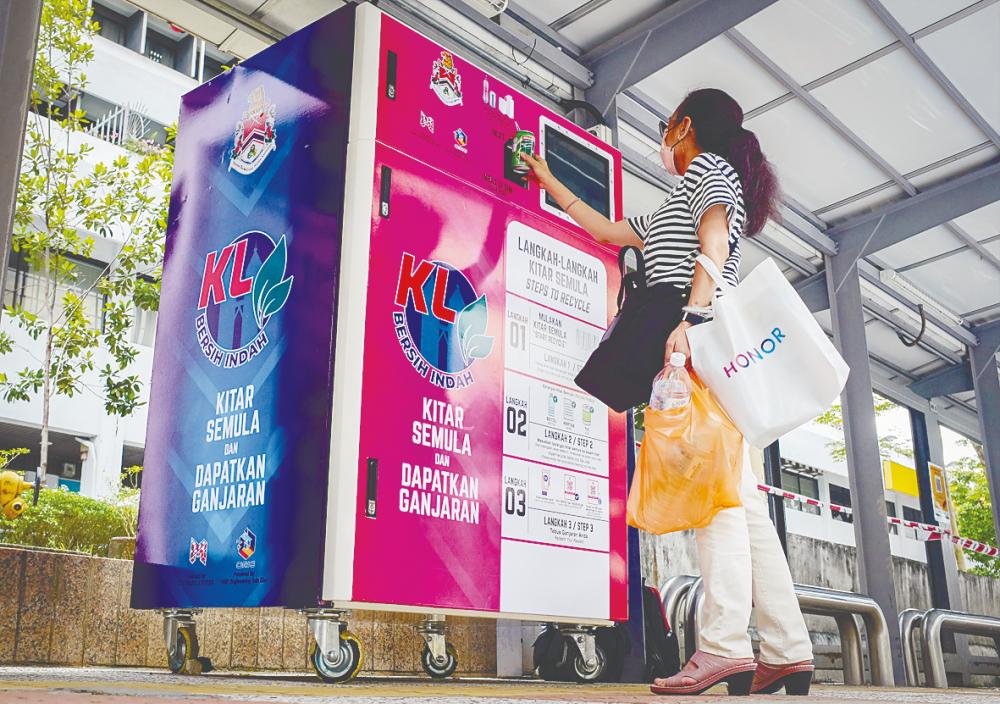IN Malaysia, many popular beverages and sauces are packaged, stored and transported in glass. Simple, yet integral to daily life, glass presents a significant economic opportunity.
According to glass manufacturer O-I, the domestic glass market in Malaysia is projected to reach approximately 200,000 tonnes – equivalent to 800 million 330ml soft drink glass bottles – by 2025.
While glass production and recycling offer significant economic potential, plastic often dominates discussions on recycling and reuse due to its volume. However, glass is 100% recyclable and can be recycled infinitely without any loss in quality or purity, making it an ideal candidate for a circular economy.
Recycling glass not only diverts waste from landfill and reduces single-use plastic packaging, but it also ensures resource efficiency when producers do not need to extract more virgin natural resources, such as sand, soda ash and limestone, to make new glass – thus reducing mining activities and preserving natural habitats.
Glass recycling rates in Malaysia remain relatively low, at just 10%, compared with the EU average of 74% and the US average of 33%.
The Asia Pacific International Spirits and Wines Alliance’s (Apiswa) latest report on “Advancing Asean’s Environmental Agenda” highlights its members’ commitments to sustainability while addressing the critical issue of post-consumption waste management.
Closing loop with infrastructure and education
Malaysia is in a prime position to seize the economic and environmental benefits of glass recycling. The country has several existing world-class glass processing, smelting and manufacturing plants.
Local food and beverage companies also represent demand for glass-packaged goods and supply of used glass, with their penchant for using glass for drinks and hot-filled sauces.
A key determining challenge remains – low collection rates of used glass mean less are available for recycled glass content.
Currently, Malaysia does not have a cost-effective, efficient and widely available collection system for post-consumer glass.
Closing the loop and strengthening this link in the supply chain will be key to supporting a higher rate of recycling and helping achieve economies of scale.
This could build scalable, sustainable infrastructure that could benefit all stakeholders – producers, recyclers, governments, consumers, and most importantly the environment.
The priority is to demonstrate the value of diverting glass from landfills. Showing the opportunities and value in recycling glass will also attract more investment for building better infrastructure.
There is also the element of consumer education and ensuring effective recycling and segmentation at source. Together, these elements will contribute to raising recycling rates for glass.
Earlier this year, five international beverage companies under Eurocham Malaysia, together with sustainability consulting firm Lasaju, embarked on its first joint industry glass collection and recycling project.
The “Glass Loop” project operates across households and retail outlets in Kuala Lumpur, Selangor and Penang, providing dedicated bins for glass collection at strategic locations. It also employs door-to-door consumer engagement and other public communications to educate the public on how to properly recycle glass.
Since November, multiple bins have also been fitted with smart sensors to better track fill levels and optimise collection logistics.
Preliminary results from the pilot project have been encouraging. The volume of glass waste that the project diverted from landfills reached more than 12 tonnes from May to August alone.
Notably in Ara Damansara, glass collection from residents rose from 120kg to 380kg following concerted education efforts, demonstrating the importance of effective public awareness outreach.
In Bangsar, Glass Loop supported the recent launch of glass recycling activities organised by Kuala Lumpur City Hall in August. These efforts by cross-sectoral stakeholders will go a long way to shed light on the costs and challenges of the current recycling ecosystem while providing valuable insights to transform post-consumer glass bottles and jars into a truly circular packaging material.
Through the glass recycling project, Glass Loop aims to generate valuable insights for the government to form policies in this area and work towards developing a cost-effective glass collection system that can create long-term value.
Industries should lead the way
The government plans to establish legislation related to extended producer responsibility (EPR), requiring manufacturers and importers to ensure end-of-life packaging is managed properly.
Likely to be implemented by 2026 onwards, the EPR is part of the Circular Economy Blueprint for Solid Waste in Malaysia (2025-2035).
The EPR scheme is another opportunity for companies to share responsibility with the government and society for sustainable development.
With ongoing efforts to test various approaches to glass collection in several parts of Malaysia, the industry is well-positioned and ready to support the government in implementing its EPR scheme. This will help ensure a viable, transparent, accountable, industry-led and trade-friendly framework.
With glass collection and recycling being a shared imperative for the industry, businesses can play a leadership role in supporting glass recycling in Malaysia.
Businesses have invested in programmes to drive collective action – for instance, the Malaysian Recycling Alliance was established in 2021 by 10 FMCG (fast-moving consumer goods) companies as a voluntary producer responsibility organisation (PRO).
Wine and spirit producers are beginning to pilot glass recycling initiatives both on and off-premise. Starting in Malaysia and Singapore, producers will collaborate with all stakeholders in the value chain to test solutions that can later be handed over to PROs for management.
Working together across the value chain
Ultimately, collaboration and shared responsibility remain fundamental to any
policy or approach addressing the end-of-life management of post-consumer glass, as the scale of the problem remains too large for any single stakeholder to tackle alone.
We hope to continue working with governments, NGO, businesses and consumers to develop effective solutions for a circular economy that reduces waste, minimises reliance on natural resources and lessens our collective environmental footprint.
Patrick Madendjian is the head of the Wine and Spirits Committee, Eurocham Malaysia, and Davide Besana is the director of the Asia Pacific International Spirits and Wines Alliance. Comments: letters@thesundaily.com









